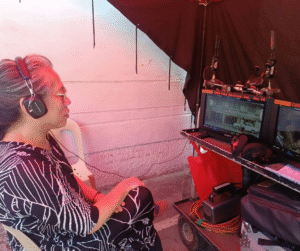By Lira Cabatbat
The Home Office announced far-reaching changes to immigration law which are scheduled to take effect in April 2024. The most controversial of the proposed changes will affect those seeking to bring their family to the UK.
What is the current law?
The current law requires family visa applicants to satisfy various conditions, primarily that they can support themselves in the UK without recourse to public funds. To prove this, they must show an income of no less than £18,600 per annum (before tax) unless they have considerable savings. For example, an applicant who has no income will need to show savings of £62,500. The existing salary requirement was introduced over a decade ago and the government believes that it should be increased to reflect the higher cost of living and the continued need to ensure that sponsored dependents can be provided for in the UK without access to public funds.
What will change?

It was originally announced in December that the minimum income requirement (MIR) to bring family members to the UK would increase to £38,700. However, the government lowered the amount after receiving criticism that the new policy would break apart families and that the increase was too high.
In its follow-up announcement, the government has now decided to raise the minimum income for family visas incrementally. Prime Minister Rishi Sunak announced that the increase will take place in stages, with the full increase in early 2025. From Spring 2024, the threshold would rise to £29,000, then moving to £34,500, and finally £38,700. The exact timing for the latter two rises has not been announced.
Will the new rules apply to current applicants?
The government announced that the new income rule will not apply to visa applications made before the rule change. They will be considered against the current MIR of £18,600. This is a departure from the usual procedure which requires the Home Office to apply the applicable law at the date of the decision (rather than at the date of the application).
What about the income requirement for children?
On the issue of assessing income and children, the government stated:
“There will no longer be a separate child element to the MIR, to ensure British nationals are not treated less favourably than migrants who are required to meet the general skilled worker threshold as a flat rate, regardless of any child being sponsored.”
Presently, a family of three (spouse and two children) joining their sponsor parent in the UK must show an income of £18,600 plus £3,600 plus £2,400. The latter two sums are additional funds required for the two children. The separate income requirement for children will be removed from Spring 2024.
Will the new rule apply to those who hold a spouse/partner visa?
No, only first-time applicants for spouse/partner visas should meet the new income requirement. The government says that
[The] change will not be applied retrospectively to people already on the five-year partner route. Those who already have a family visa within the five-year partner route, or who apply before the minimum income threshold is raised, will continue to have their applications assessed against the current income requirement and will not be required to meet the increased threshold. This will also be the case for children seeking to join or accompany parents.
The new rule will not apply to those who already have a family visa within the 5-year partner route or who apply before the minimum income requirement takes effect. The same rule applies to children seeking to join their parents. This means that they will continue to assess those applicants under the old MIR of £18,600 plus any additional sums for any non-British children.

What about those on fiancé/ée visa?
On the issue of assessing income and fiancé/ée, the government stated:
Anyone granted a fiancé/fiancée visa before the minimum income threshold is raised will also be assessed against the current income requirement when they apply for a family visa within the five-year partner route.
Those who have been granted a fianc(é)e visa before the minimum income threshold is raised will be assessed against the old rule when they apply for a family visa within the 5-year partner route. Hence, fiancé/fiancée assessed at £18,600 will be required to comply with the lower MIR of £18,600 even after the new MIR of £29,000 takes effect.
What happens to those who would like to swap their visas?
On the issue of those already in the UK on visas other than spouse or fianc(é)e, the government stated:
Those already in the UK on a different route, who apply to switch into the five-year partner route after the minimum income requirement has been increased, will be subject to the new income requirement.
For example, someone with a visa under the Skilled Worker route swapping to a spouse after the new rules come into effect will need to satisfy the new £29,000 income threshold.
The minimum income requirement of £29,000 from April 2024 will still be problematic for many. My advice? Submit your application now!
About the author

Lira Simon Cabatbat is the first Filipino solicitor in the UK and founded Douglass Simon Solicitors more than 25 years ago. She specialises in immigration, family law and human rights. Lira has a wealth of experience in family and matrimonial cases particularly those with international elements.
Other articles can be found at the Douglas Simon Solicitors website. Contact us by telephone at 0203 375 0555 or email cabatbat@douglass-simon.com.













